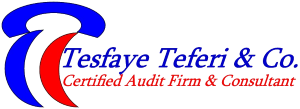https://renewstrategies.com/node/1784

Tamiru Belayneh| August 5, 2020
IFRS (International Financial Reporting Standards) refers to a single set of globally recognized standards and interpretations applicable to general purpose financial statements and other financial reporting of all profit oriented entities.
IFRS prescribes:
- The items that should be recognized as assets, liabilities, income and expense;
- How to measure those items;
- How to present them in a set of financial statements; and
- The related disclosures about those items.
Application or adoption of IFRS is believed to result in financial reports of high quality which:
- Are comparable, understandable and reliable and relevant to users
- Include increased transparency
- Foster increased efficiency of contracting between firms and lenders and more efficient capital markets.
120 nations permit or require IFRS for domestic listed companies, while close to 90 countries have fully conformed with IFRS as promulgated by the IASB (International Accounting Standards Board).
When it comes to Ethiopia, for years, there was no single accounting standard in use, so businesses had to rely on different regulations and their own internal accounting policies for the preparation of financial reporting. This impacted comparability and reliability of the reporting.
The government of Ethiopia issued a proclamation titled “Financial Report Proclamation of Ethiopia: 847/2014” and Council of Ministers Regulation 332/2014 instructing adoption of IFRS and establishing the AABE (Accounting and Audit Board of Ethiopia) to take responsibility and to guide and dictate the implementation of IFRS, which became effective December 2014.
In Ethiopia, mandatory adoption of IFRS is scheduled in the following phases:
- Phase 1: Significant Public Interest Entities: financial institutions and public enterprises owned by federal or regional governments, starting in 2018
- Phase 2: Other Public Interest Entities: ECX member companies and reporting entities that meet two of the below four criteria, starting in 2019:
Annual turnover exceeding 50,000,000
Total employees exceeding 100 employees
Total Asset exceeding 100,000,000
Total Liability exceeding 100,000,000 - Phase 3: Small and Medium Sized Entities: whose turnover exceeds 1,000,000, starting in 2020
Here are a few tips to highlight to get started with the IFRS process:
- Dedicate an expert or team who will be leading IFRS research or engagement
- Determine if Ethiopia’s recent IFRS rulings apply to your company. If it applies, come up with an IFRS implementation plan including decision on in-house adoption or assistance through the help of an external party or consultant
- Identify the list of relevant IFRS and IAS applications for an effective transition to IFRS
- Develop the relevant accounting policy
- Choose the appropriate costing model: costing model or revaluation model
- Analyze the existing process and identify deviation with IFRS rulings

Below are some of the top IFRS implementation challenges and frequently asked questions shared by early adopters. Challenges in deciding to do it in house or hire a professional. Not all certified or chartered experts have the experience in running the IFRS implementation process. Companies need to choose wisely who to onboard on this project, whether it is done in-house or sourced.
- Is the IFRS implementation a finance role only? Many believe so, but IFRS actually involves a number of processes and requires input from various teams including engineering, human resources, finance, legal, marketing, procurement and leadership to get input on estimates, valuation, severance, any legal claims, inventory impairment and others.
- Are your key finance team members well trained or informed in the IFRS rulings or codifications? It is noted that at times, collaborations become challenging due to lack of skills by the finance team on IFRS. It’s important to plan in advance and have teams involved in short-term training ahead of implementation.
- Do we need to re-evaluate all assets to be IFRS compliant? Many reports indicate that there is a tendency to have everything re-evaluated, but please consult the experts as this may vary on a case-by-case basis, depending on the circumstances.
- Is the tax office (ERCA) fully compliant with IFRS? Not fully at this point – which implies some of the assumptions used in the IFRS reporting might not be accepted by the tax authority. In that case, firms may be forced to prepare two sets of financials – one for AABE and one for the tax office.
Since the proclamation, a number of companies have adopted IFRS in their reporting process while the majority of SMEs (the small and medium sized entities) are expected to adopt it in the current fiscal year.
In a recent news update from AABE officials, it appears that AABE has determined the overall IFRS implementation is unsatisfactory in terms of compliance and far fewer companies have adopted the standards in their recent reporting.
It was indicated that AABE’s team is working on charting out the next steps to address the obstacles and advance with the IFRS implementation process, details will be announced at a later date.
Below are some of the centers that offers IFRS trainings in Ethiopia:
- AABE – Accounting and Auditing Board of Ethiopia – for members only
- AACCSA – Addis Ababa Chamber of Commerce and Sectoral Associations
- School of Commerce, Addis Ababa University
If you didn’t see your question answered above, feel free to reach out to RENEW (renew@renewstrategies.com) for more information on IFRS.
To find out more about RENEW or the IAN, contact us at renew@renewstrategies.com, follow us on Twitter @RENEWLLC or find us on Instagram @impactangelnetwork. Be sure to check out our upcoming events at the Exchange in Addis Ababa.
Disclaimer: This blog article is strictly for informational purposes only and does not constitute accounting, tax or legal advice. Readers of this blog should consult their professional advisors to obtain advice with respect to IFRS implementation and any particular accounting or tax matter discussed herein. The information in this blog is provided “as-is” and no representation is made that the information is accurate or complete, nor should it be relied upon as such. Information in this blog may not constitute the most up-to-date accounting or other information. All liability with respect to actions taken or not taken based on the contents of this blog are hereby expressly disclaimed.

